#Marquez 1890
Text
Huge uncanny valley/AI picspam of the heirs and their spouses of the Marquez/Cortes/Huntington/Morales clan inspired by @aheathen-conceivably as per usual :)
All pictures under the cut!
Alberto and Liliana (1890s)


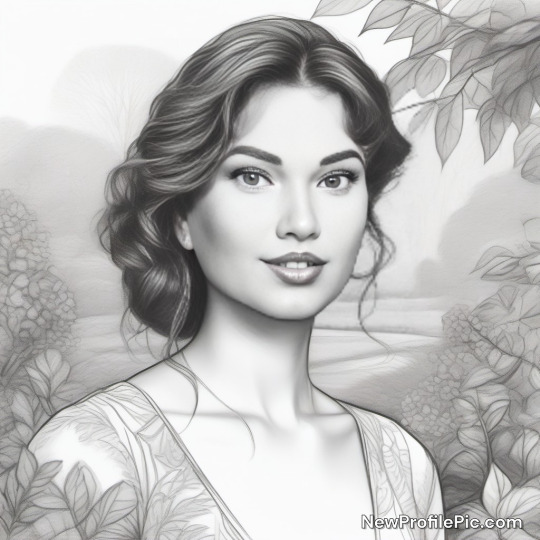
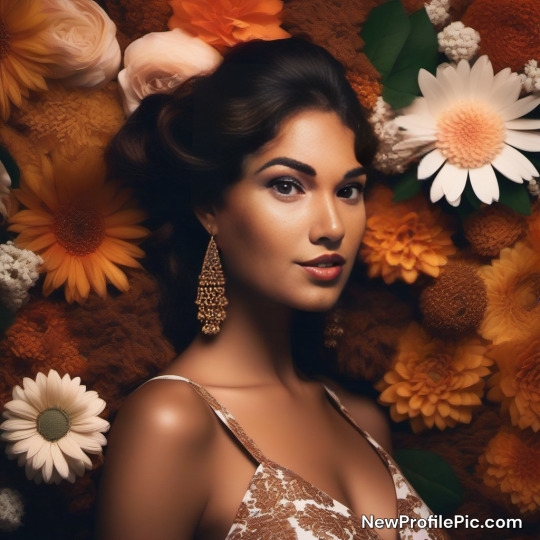
(The founders! Our original beautiful farming couple.)
Arturo and Valeria (1900s)


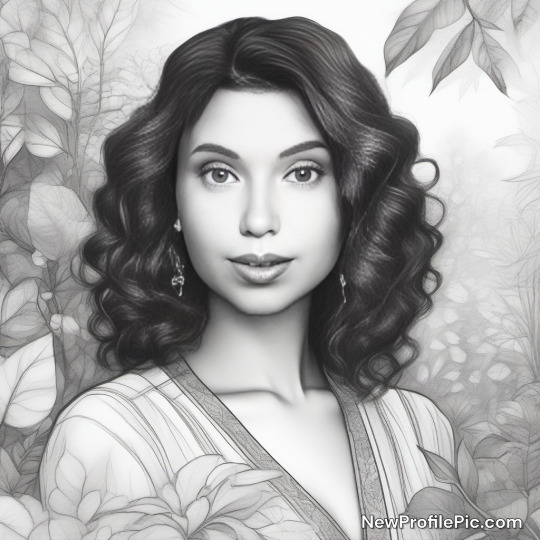

(They both look gorgeous 10/10)
Manuel and Elsa (1910s)
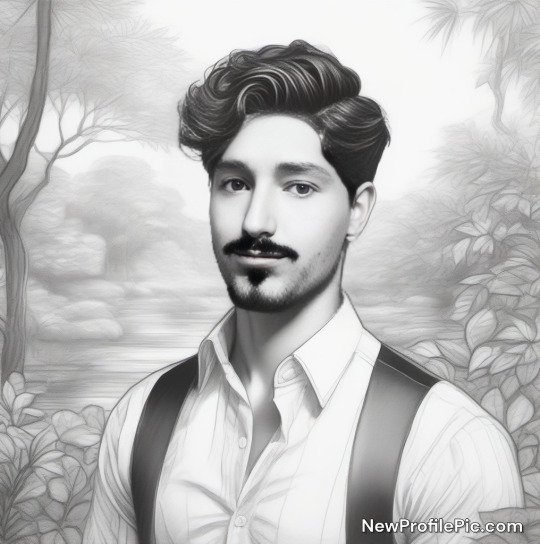
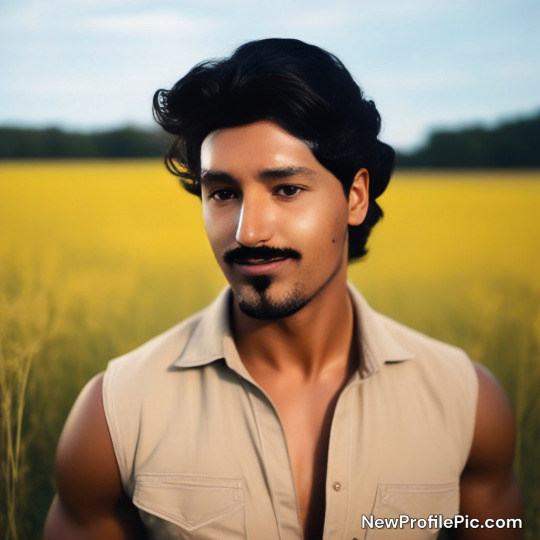


(I maintain that Elsa is one of the prettiest Sims I've ever made!)
Olga and J (1920s)




(Olga looking gorge as per usual but that first pic of J is a little wonky.)
Consuelo and Andres (1930s) + bonus Helen


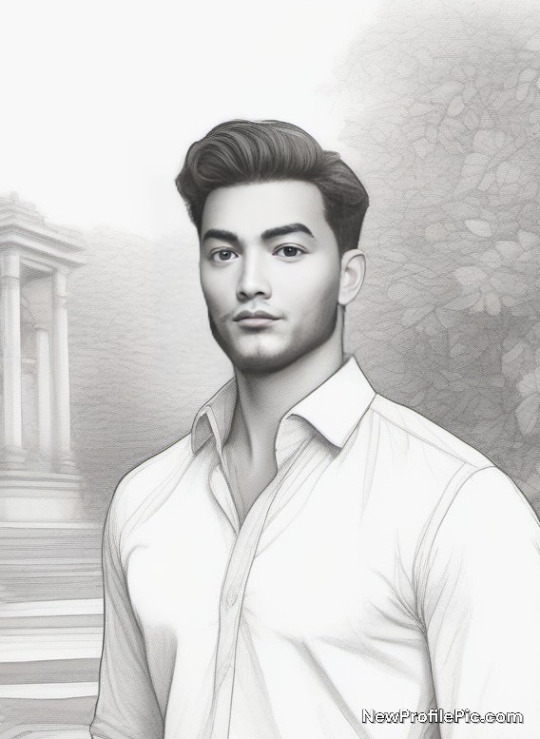



(They left out Consuelo's glasses.... how dare they. Andres definitely looks accurate and Helen is also beautiful!)
Hector and Alexandrea (1940s)
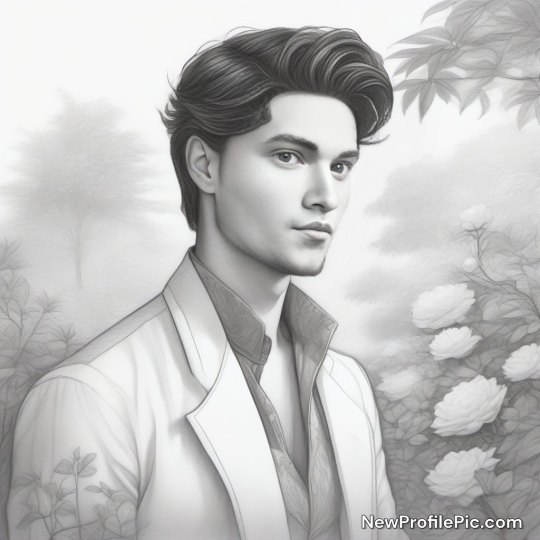

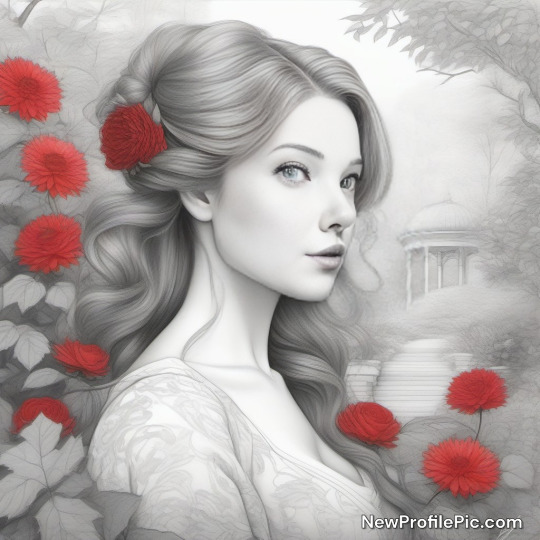

(Hec looks like a prince in the first one... and I like the added red flowers in Alexandrea's!)
#everyone looks like a model...... live action tv series when#personal faves for how they turned out are Lili and Val and Elsa and Andres#glad they didn't whitewash any of them either but mad they forgot Chelo's glasses#lmk your thoughts!#Marquez extras#long post#unreality
7 notes
·
View notes
Text
1890s: The Thorpe Legacy
Part 12
Love was in the air around the Thorpe homestead as the teenagers matured and progressed towards adulthood.
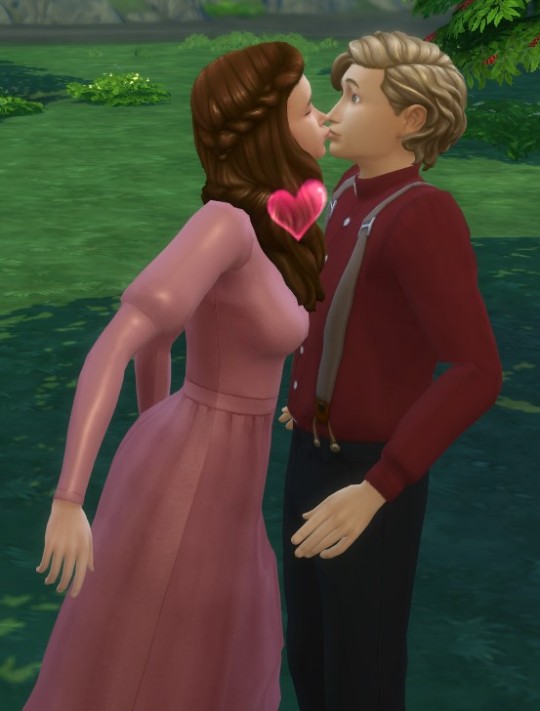
Elizabeth found love with Harry Swanson. He hoped to become a doctor and Elizabeth planned to help him keep with scheduling and record keeping since being home all the time keeping house sounded boring to her.
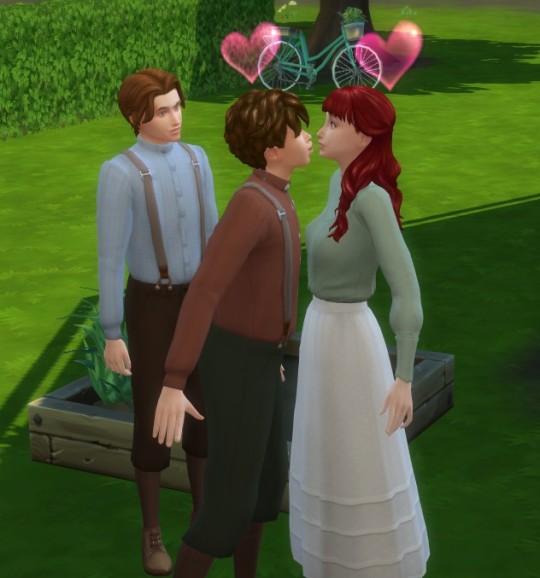
James fell for sweet and shy Millie Sedlak, daughter of their neighbors to the west. Her family were also farmers, so she was prepared for the hard work of farm life and looked forward to raising a family of her own. (Fun fact: The Sedlaks were my founding couple in my previous decades challenge. I placed them as townies in this save, but it’s kind of fun to see my decades families intermarrying).
While I don’t seem to have a picture of it, Joseph (seen above creepily watching his twin’s first kiss) decided to court and marry his best friend, Camila Marquez. They were inseparable, and he brought her home with him from school every day. Neither Joseph nor Camila knew what they wanted from adulthood but figured they couldn’t go wrong with each other.


Meanwhile, Frederick had fallen hard for Sybil Webster. She was a friend of his sister Charlotte and often visited the Thorpe home. She and Frederick often seemed to find each other for conversation, and before too long, they were smitten. Frederick and Sybil will be the heirs for the 1900s.

Prev / Next
#the thorpe legacy#gen 1#gen 2#ts4 decades challenge#sims 4 decades challenge#ts4 historical#sims 4 historical#ts4 legacy#sims 4 legacy#elizabeth thorpe#frederick thorpe#james thorpe#joseph thorpe#sybil webster#thorpe 1890s#thorpe gen 1#thorpe gen 2#simblr
6 notes
·
View notes
Text
Mental: Reading List
English:
Haruka Murakami, After Dark (currently reading):
In its center are two sisters—Eri, a fashion model slumbering her way into oblivion, and Mari, a young student soon led from solitary reading at an anonymous Denny’s toward people whose lives are radically alien to her own: a jazz trombonist who claims they’ve met before, a burly female “love hotel” manager and her maid staff, and a Chinese prostitute savagely brutalized by a businessman. These “night people” are haunted by secrets and needs that draw them together more powerfully than the differing circumstances that might keep them apart, and it soon becomes clear that Eri’s slumber—mysteriously tied to the businessman plagued by the mark of his crime—will either restore or annihilate her.
Paradise Lost, John Milton
John Milton's Paradise Lost is one of the greatest epic poems in the English language. It tells the story of the Fall of Man, a tale of immense drama and excitement, of rebellion and treachery, of innocence pitted against corruption, in which God and Satan fight a bitter battle for control of mankind's destiny. The struggle rages across three worlds - heaven, hell, and earth - as Satan and his band of rebel angels plot their revenge against God. At the center of the conflict are Adam and Eve, who are motivated by all too human temptations but whose ultimate downfall is unyielding love.
1Q84, Haruka Murakami (description from Wikipedia)
The novel is a story of how a woman named Aomame begins to notice strange changes occurring in the world. She is quickly enraptured in a plot involving Sakigake, a religious cult, and her childhood love, Tengo, and embarks on a journey to discover what is "real".
The Night Tiger, Yangzee Choo
When 11-year-old Ren's master dies, he makes one last request of his Chinese houseboy: that Ren find his severed finger, lost years ago in an accident, and reunite it with his body. Ren has 49 days, or else his master's soul will roam the earth, unable to rest in peace. Ji Lin always wanted to be a doctor, but as a girl in 1930s Malaysia, apprentice dressmaker is a more suitable occupation. Secretly, though, Ji Lin also moonlights as a dancehall girl to help pay off her beloved mother's Mahjong debts. One night, Ji Lin's dance partner leaves her with a gruesome souvenir: a severed finger. Convinced the finger is bad luck, Ji Lin enlists the help of her erstwhile stepbrother to return it to its rightful owner. As the 49 days tick down, and a prowling tiger wreaks havoc on the town, Ji Lin and Ren's lives intertwine in ways they could never have imagined. Propulsive and lushly written, The Night Tiger explores colonialism and independence, ancient superstition and modern ambition, sibling rivalry and first love. Braided through with Chinese folklore and a tantalizing mystery, this novel is a page-turner of the highest order.
Great Goddesses, Nikita Gil
Wonder at Medusa's potent venom, Circe's fierce sorcery and Athena rising up over Olympus, as Nikita Gill majestically explores the untold stories of the life bringers, warriors, creators, survivors and destroyers that shook the world - the great Greek Goddesses. Vividly re-imagined and beautifully illustrated, step into an ancient world transformed by modern feminist magic.
Aphrodite Made Me Do It, Trista Mateer
In this empowering retelling, she uses the mythology of the goddess to weave a common thread through the past and present. By the end of this book, Aphrodite will make you believe in the possibility of your own healing.
Kokoro, Natsume Soseki
Hailed by The New Yorker as "rich in understanding and insight," Kokoro — "the heart of things" — is the work of one of Japan's most popular authors. This thought-provoking trilogy of stories explores the very essence of loneliness and stands as a stirring introduction to modern Japanese literature.
The Lover, Marguerite Duras
Set against the backdrop of French colonial Vietnam, The Lover reveals the intimacies and intricacies of a clandestine romance between a pubescent girl from a financially strapped French family and an older, wealthy Chinese-Vietnamese man.
The Picture of Dorian Gray, Oscar Wilde (Reread)
Written in his distinctively dazzling manner, Oscar Wilde’s story of a fashionable young man who sells his soul for eternal youth and beauty is the author’s most popular work. The tale of Dorian Gray’s moral disintegration caused a scandal when it first appeared in 1890, but though Wilde was attacked for the novel’s corrupting influence, he responded that there is, in fact, “a terrible moral in Dorian Gray.” Just a few years later, the book and the aesthetic/moral dilemma it presented became issues in the trials occasioned by Wilde’s homosexual liaisons, which resulted in his imprisonment. Of Dorian Gray’s relationship to autobiography, Wilde noted in a letter, “Basil Hallward is what I think I am: Lord Henry what the world thinks me: Dorian what I would like to be—in other ages, perhaps.
Writers & Lovers, Lily King
Blindsided by her mother's sudden death, and wrecked by a recent love affair, Casey Peabody has arrived in Massachusetts in the summer of 1997 without a plan. Her mail consists of wedding invitations and final notices from debt collectors. A former child golf prodigy, she now waits tables in Harvard Square and rents a tiny, moldy room at the side of a garage where she works on the novel she's been writing for six years. At thirty-one, Casey is still clutching onto something nearly all her old friends have let go of: the determination to live a creative life. When she falls for two very different men at the same time, her world fractures even more. Casey's fight to fulfill her creative ambitions and balance the conflicting demands of art and life is challenged in ways that push her to the brink.
Death in Venice, Thomas Mann
Published on the eve of World War I, a decade after Buddenbrooks had established Thomas Mann as a literary celebrity, Death in Venice tells the story of Gustav von Aschenbach, a successful but aging writer who follows his wanderlust to Venice in search of spiritual fulfillment that instead leads to his erotic doom.
In the decaying city, besieged by an unnamed epidemic, he becomes obsessed with an exquisite Polish boy, Tadzio. "It is a story of the voluptuousness of doom," Mann wrote. "But the problem I had especially in mind was that of the artist's dignity."
French:
Bonjour Tristesse, Françoise Sagan
The villa is magnificent, the summer hot, the Mediterranean nearby. Cécile is seventeen years old. She knows of love only kisses, dates, weariness. Not for a long time. His widowed father is a joyful follower of transient and unimportant relationships. They have fun, they don't need anyone, they are happy. The visit of a woman of heart, intelligent and calm, disturbs this delicious disorder. How do you avoid the threat? In the burning pine forest, a cruel game is brewing. It was summer 1954. We heard for the first time the dry and rapid voice of a "charming little monster" which was going to cause scandal. the second half of the 20th century was beginning. She would be like this teenage girl torn between remorse and the cult of pleasure.
À rebours, Joris-Karl Huysmann
The ultimate hero of the century! Cynical, misogynistic and romantic in the extreme. An idle aristocrat, isolated, he gives himself up to a meditation on existence, art, religion, women ... He delves into the experience of boredom to the point of disgust. His intellectual acuity as well as the refinement of his senses make him despise the vulgar while experiencing the inevitable suffering of an overly acute sensitivity.
Spanish:
Cien Años de Soledad, Gabriel García Marquez
the Buendia family, and chronicles the irreconcilable conflict between the desire for solitude and the need for love—in rich, imaginative prose that has come to define an entire genre known as "magical realism."
3 notes
·
View notes
Text
Study Groups and also seminars Contents
The shopping center may be actually an ideal place to go to shop for garments, yet it might additionally be actually a spot of confusion. Andrew Cuomo told The New york city Moments in mid-August Though he has certainly not pointed out whether he sustains Relocate NY exclusively and also really did not comment for this tale, Cuomo has constructed a panel to advise him on a policy to ease road visitor traffic and also straight brand-new funds to buses and also subways.
When it comes to the Pygmies, their capital area was actually stocked wrecks by the trauma and also resonance of the sky; and also, though there was actually uproar sufficient without their support, they ready up a squeal away from 3 millions of little necks, desiring, certainly, that they swelled the Giant's bellow through at the very least ten opportunities as much.
The products gone over are actually certainly not intended to address, stop any kind of illness or even heal as well as have actually not been accepted as drug by the FDA or the EFSA. By combining extracts of different efficacy a standard premium product can be made.
There is actually verification of the contrary impact: Takecareofyourself16.info our experts actually stated this research (Bastyr University, 2015) Non-extracted powder mushroom products (including 8 Hold Defence items) were actually showing only a fraction of the therapeutic impacts of a true essence - view the dining table.
Certain Washington political leaders pick to eliminate for international nations, yet Head of state Trump will certainly regularly defend the United States folks," White Home key replacement media assistant Raj Shah mentioned in a statement later on that day. Marquez memang hormat sekali pada petinggi Honda yang telah mendukungnya menjadi salah satu pembalap besar abad ini.
Future Anterior: Diary of Historic Conservation Background, Concept, and Unfavorable Judgment 1 (2 ): 42-49. Whether to secure, or market right now as well as lease, is a weighty choice; as well as the reasoning contrasts for every family - so our company firmly highly recommend creating it along with the advice of your professional economic specialist.
In Building Review of Historical Constructions: Process of the VI International Association on Structural Review of Historical Constructions, SAHC08, 2-4 July 2008, Bathroom, UK. Wait for later on: DOCOMOMO majordomo Theodore Prudon is combating to keep America's Modern building heritage.
2. Tincture them utilizing the chilly or even potentially a safe hot procedure to extraction components that will dissolve in liquor. In The Modern Technology of Historic American Properties: Researches of the Products, Craft Processes, and the Mechanization of Building Construction, edited through H. Ward Jandl, 117-51.
Carbonation and historical properties crafted from concrete. Saving structures of the Modern Activity. Our team kept there for 6 years, yet with the increase in rate of food stuffs for the chickens as well as pigs my Dad must offer it up. Our company transferred to Gt. Yarmouth to open a boarding residence.
Three folks died Sunday, consisting of a 32-year-old lady that was actually hit by a cars and truck that tilled into a team of counter-demonstrators and two others that died in a helicopter crash near the demonstrations. Shaping the Great City: Modern Design in Central Europe 1890-1937.
The reps I conversed along with were pleasant and also sympathetic adequate yet barely went out of their means to aid and also as a worldwide consumer I experience I've been completely forgotten by their consumer treatment that seemingly doesn't value me the same as a United States client.
1 note
·
View note
Text
✧*:・゚✧ merlin! is that SEAN TEALE? no, it’s just DEIMOS TRAVERS the SIXTH YEAR SLYTHERIN ( PUREBLOOD ). we’ve heard rumors that HE ( CIS MALE ) is PRINCIPLED, DECISIVE & OBSERVANT but can also be very RUTHLESS, HATEFUL & SCHEMING. if i had to pick one song to describe HIM it would be YOU’RE GONNA GO FAR, KID BY THE OFFSPRING. Good luck with the rest of your time at Hogwarts.

TRIGGER WARNINGS: child abuse, murder mention, torture mention, snake mention.
BASICS.
name. Deimos ( terror ) Pythios ( to rot ) Travers.
age. Sixteen / Seventeen.
year. Sixth year.
house. Slytherin.
wand. Elm wood, Dragon Heartstring core, 12″ long.
patronus. He cannot produce one, but if he were able, it would be a black mamba.
boggart. His father, disappointed in him, wand pointed at his chest.
zodiac. Capricorn.
sexuality. Heterosexual.
pets. The family Owl, Hermes.
BACKGROUND.
deimos was born january 8th to the less-than loving pythios travers and his wife, daniela travers (nee marquez). their marriage had been born of controversy of the likes which never really mattered that much to anyone - daniela, recently widowed and now a british citizen, had been purportedly sleeping with a number of influential pureblood figures (an accusation which her father resented), and the only reasonable solution was to seek a marriage with such an influential figure - pythios, with the recent crumbling of his betrothal, was the only natural choice. (of course, nobody truly cared - but it was an accusation which the marquez family sought to crush, for no other reason than protecting their standing, as though it would be damaged - they were new to the pureblood circles in england, and had very little standing in most circles, regardless.)
[tw: allusion to child abuse as such, deimos was the child that was bounced between parents, of whom held no true interest in him, even from a young age, the expectations were piled upon him. his purpose was to absolve the reputations of his parents, and maintain the standing in pureblood society they knew they deserved. he wasn’t ever allowed to be a child - there were always hands on his shoulders, turning him away from the sight of other sacred 28 children being allowed to play quidditch or even walk around the grounds. deimos was sheltered, molded into the image of his namesake, and was often found at his fathers’ side, observing the way the travers family business worked (they traded, most often, with the famed borgin and burke’s, and had a quiet storefront hidden in knockturn alley, dedicated to the research into dark spells and the ancient dark texts from as early as the 5th century, only open to those who knew the location well enough.) end of tw]
[tw: child abuse deimos did not grow up loved, nor did he grow up spoiled. he grew up with a rigid routine, going to bed hungry if he stepped out of line, receiving a sharp smack to his cheek from his mother if he said something out of line, and the only times he can remember any of them having smiles on their faces were at the pureblood galas they had to attend, like clockwork. if anyone were to ask deimos about his childhood, he’d rarely ever tell them the truth. he’d tell the stories of working with his uncle in the travers family store and of how his father is the reason he is who he is today, but he’d rarely tell the stories of how he would be locked away in his room, how he’d not see his mother for days until she showed up for the necessary public outings. his childhood left him with unresolved issues - not, per say, an over-inflated sense of self-worth (although, you could argue that his position on blood purity extends to the superiority of himself), but a rather rigid sense of what things should be, how the world should be, and a tendency to find the negative in everything, whilst seemingly separating himself from reality. end of tw]
if there was one person in his life that he would point to as the one who would show him affection or any form of love, it would be his grandmother, lachesis. she helped to raise him, when his mother wasn’t around - arguably, she’s the only person he truly gives much of a damn about, although she was still cold, although less so than his father and less so than his mother. she was not the type to give him extra helpings of food or to caress his cheek for doing well. she was the type to not punish him if he got a word wrong, the type to leave him a book at the end of his bed as a gift for doing well. she was distant, but she was more present than the others. going to hogwarts was something pythios wished deimos could have avoided. it was only after his mother reminded him how it could potentially complicate things if he was sent to durmstrang that they allowed his admission to hogwarts. it’s as far from a home as deimos can imagine. his home is cold, but it’s still his. hogwarts is far too welcoming, in his eyes, to those who do not deserve it. he was sorted into slytherin, and of course, feels some form of kinship with salazar slytherin himself. he lives by principles. his entire life, up until this point, has been increasingly structured. his grades are high, his work ethic, seemingly, even higher, and interest in dark magic a little too strong to be much other than incredibly troubling.
TRAVERS FAMILY TRADITIONS.
Everyone is familiar with the naming traditions of the Black family. From Andromeda to Sirius to Walburga, each name is chosen for the fact they are all names of constellations. The Travers family have always taken their names from Ancient Greek mythology. The first recorded Travers, Adrastos ( named for the figure in Ancient Greek mythology, who was a king of Argos ), was the proponent of this tradition - which has been upheld ever since. Each Travers male is named for a figure in Greek mythology, while also retaining the name of his father. Each Travers female is named for two figures in Greek mythology, as is tradition.
EXAMPLES: Andromache ( derived from man; derived from battle ) Ismene ( knowledge ) Travers, the first shop-keep of the Travers family business, Pythios ( to rot ) Patroclus ( glory of the father ) Travers, Deimos’ father & original member of the Knights of Walpurgis.
Once a Travers turns seventeen, they receive their own portion of the land on which they were raised as well as unsupervised access to the family vault. This is customary, and has only ever been revoked thrice - Linux Travers lost his access to the family vault and land when he married a muggle ( as a result, his children were targets until they moved to America sometime in the late 1890s ), Endymion Travers lost his when he became a member of the International Confederation of Wizards ( sometime in the 1920s ) and became an open supporter of muggle integration, and Clytemnestra Travers lost hers for falling in love with a muggleborn ( long, long ago. )
The Travers family have had a series of homes in their long, long history. The three they currently own are the Travers family home in rural Wales, the summerhouse in Italy, and the springhouse in London ( which has, undeniably, become more of a home to his father in the previous years, due to it’s closeness to Knockturn Alley. )
RAMBLINGS / FACKS.
guilty of being prejudiced against p much everyone???
the only people he doesn’t outright hate are other slytherin’s but even then some of those are probably people who just annoy tf out of him
the lack of Chill is scary ( he’s... a terrifying person )
can hold a grudge for a v v long time
his childhood is a HUGE part of who he is even though he’ll deny it
he remembers, vividly, spending hours and hours and hours pouring over books in the travers family library to impress his father only to get a brief glance in his direction when he tells his father what he’s learnt
he’s learnt, by now, that his father only will be proud of him if he upholds the expectations laid on his shoulders
his mother actually isn’t a death eater but is v much someone who is a purist and has done nothing to stop the eventual integration of deimos into the death eaters / knights of walpurgis
learned how to make a lot of potions at a v young age, usually because his father lacked the ability to care about making them properly and wanted to take that Responsibility off his shoulders
sticks in a v v tiny circle of fellow purebloods + future death eaters
has a soft spot for, like, three people
[tw: child abuse, injury (sorta) still has scars from his father using magic to beat him when he was a child end of tw]
[tw: murder, torture actually found out his father was a murderer earlier this year + was guilty of all the accusations ( unproven ) which emerged in the years before he was born + honestly inherited his hateful side from him
an entitled asshole who lives and breathes blood purity and believes wholeheartedly in the death eaters ( or, perhaps, believes in the violence they preach being the best way to remind people that the purebloods are the ones who deserve all the control )
literally the WORST he supports both torture + murder + probably takes part in the former just as much as the latter before the end of the first war + he’s sent to azkaban for murder end of tw]
throw actual trash at him, please, he deserves it (#trashbagtravers)
8 notes
·
View notes
Text
Books mentioned in An Unnecessary Woman
Here’s a list of all the books mentioned in Rabih Alameddine’s An Unnecessary Woman, a novel about a book-obsessed 72-year-old woman who only leaves her book-laden apartment when she has to. What are some of your favorites here?
1. Austerlitz (2001) by W G Sebald
2. The Emigrants (1992) by W G Sebald
3. 2666 (2004) by Roberto Bolaño
4. The Savage Detectives (1998) by Roberto Bolaño
5. A Heart So White (1992) by Javier Marias
6. Tomorrow in the Battle Think on Me (1994) by Javier Marias
7. Your Face Tomorrow Trilogy (2002-2007) by Javier Marias
8. A Tale of Two Cities (1859) by Charles Dickens
9. Invisible Cities (1972) by Italo Calvino
10. Cinnamon Shops (1934) by Bruno Schulz
11. The Conformist (1951) by Alberto Moravia
12. Lolita (1955) by Vladimir Nabokov
13. The Reluctant Fundamentalist (2007) by Mohsin Hamid
14. The Shipping News (1993) by Annie Proulx
15. The Magic Mountain (1924) by Thomas Mann
16. 100 Years of Solitude (1967) by Gabriel Garcia Marquez
17. The Year of the Death of Ricardo Reis (1984) by Jose Saramago
18. Murphy (1938) by Samuel Beckett
19. Waiting for Godot (1952) by Samuel Beckett
20. Death of a Travelling Salesman (1936) by Eudora Welty
21. Giovanni’s Room (1956) by James Baldwin
22. Corydon (1924) by Andre Gide
23. Sepharad (2001) by Antonio Muñoz Molina
24. Sophie’s Choice (1979) by William Styron
25. Nightwood (1936) by Djuna Barnes
26. The Leopard (1957) by Guiseppe Lampedusa
27. Kaddish for an Unborn Child (1990) by Imre Kertész
28. Fatelessness (1975) by Imre Kertész
29. Crime & Punishment ((1866) by Fyodor Dostoyevsky
30. The Brothers Karamozov (1880) by Fyodor Dostoyevsky
31. Madame Bovary (1856) by Gustave Flaubert
32. The Waves (1931) by Virginia Woolf
33. Mrs Dalloway (1925) by Virginia Woolf
34. Anna Karenina (1877) by Leo Tolstoy
35. The Book of Disquiet (1888-1935) by Fernando Pessoa
36. The Fall (1956) by Albert Camus
37. The French Lieutenant’s Woman (1969) by John Fowles
38. Metamorphosis (1915) by Franz Kafka [my review]
39. The English Patient (1992) by Michael Ondaatje
40. Dubliners (1914) by James Joyce
41. Herzog (1964) by Saul Bellow
42. Hills like White Elephants (1927) by Ernest Hemingway
43. For Whom the Bell Tolls (1940) by Ernest Hemingway
44. The Encyclopaedia of the Dead (1983) by Danilo Kiš
45. Ransom (2009) by David Malouf
46. The Colour Purple (1982) by Alice Walker
47. This Way for the Gas, Ladies and Gentlemen (1947) by TadeuszBorowski
48. Alice in Wonderland (1865) by Lewis Carroll
49. The Vanity of Human Wishes (1749) by Samuel Johnson
50. Flight Without End (1927) by Joseph Roth
51. Hunger (1890) by Knut Hamsun
52. A Book of Memories (1986) by Péter Nádas
53. The Prime of Miss Jean Brodie (1961) by Muriel Spark
54. A House for Mr Biswas (1961) by V S Naipaul
55. Midnight’s Children (1981) by Salman Rushdie
56. Waiting for the Barbarians (1980) by J M Coetzee
1K notes
·
View notes
Text
Pic(s) of the Week: Free to Use and Reuse!
Pic(s) of the Week: Free to Use and Reuse!
By Neely Tucker
Published July 05, 2019 at 08:58AM
Ice cream vendor, Havana, Cuba, c. 1890-1910. Detroit Publishing Company collection, Prints and Photographs Division.
This image of a long-ago Caribbean ice-cream vendor! You can taste the cool softness of the ice cream melting on your tongue, feel the pearl of sweat slipping down the nape of your neck, hear the bell from the nearest steeple. It’s enough to set you in mind of the dreamy opening sentence from “One Hundred Years of Solitude,” Gabriel Garcia Marquez’s masterpiece: “Many years later, as he faced the firing squad, Colonel Aureliano Buendia was to remember that distant afternoon when his father took him to discover ice….”
True, our photo is from Cuba, not Marquez’s Colombia, and our unknown vendor is peddling ice cream, not just ice. But the picture, taken by an unknown photographer between 1890 and 1910 in Havana, evokes so much of the turn-of-the-century era, before electricity and ice became commonplace. The eye is drawn to the glasses used for ice cream (surely they tinkled or chimed together as he walked); the women in long dresses and bonnets, receding into the distance; the barred entryways to the doors on the street (was it Sunday afternoon, and stores where shuttered?); the direct gaze of the man whose features are hidden by his hat.
It’s our “Pic of the Week” this Friday, as we introduce the Library’s “Free to Use and Reuse” sets of photographs and prints here on the blog. The Library has millions of copyright-free items like this one that you can download and use as you wish, be they photographs, prints, manuscripts, maps, musical scores, books, newspapers, prints, films, recordings and so on. The Library highlights a themed batch of photographs and prints on our homepage at the first of each month, and we’ll pick one to highlight here on the first Friday.
This month’s feature is ice cream, because summer, and there are dozens of fabulous pics. Here’s one from South Carolina, with a deep blue summer sky to die for:
Zesto ice cream sign, West Columbia, S.C. Photo: John Margolies. Prints and Photographs Division.
And nothing said early 20th-century small-town bling like a stained-glass Tiffany lamp at the local ice cream parlor. This beauty is from Zaharakos Ice Cream Parlor in Columbus, Indiana, which opened in 1900 and is still around.
Stained-glass Tiffany lamp at Zaharakos Ice Cream Parlor. Historic American Buildings Survey, Prints and Photographs Division.
Feel free to shuffle around on your own. There’s no rush. It’s the middle of summer, and we’re talking about ice cream.
Subscribe to the blog— it’s free! — and the largest library in world history will send cool stories straight to your inbox.
Read more on https://loc.gov
0 notes
Text
The Big Meta Book List

9.5 | Nineteen Eighty-Four (1949) by George Orwell
9 | Lolita (1955) by Vladimir Nabokov
9 | Ulysses (1922) by James Joyce
9 | The Great Gatsby (1925) by F. Scott Fitzgerald
9 | Midnight’s Children (1981) by Salman Rushdie
8.9 | Brave New World (1932) by Aldous Huxley
8.9 | The Sound and the Fury (1929) by William Faulkner
8.8 | The Lord of the Rings (1954) by J.R.R. Tolkien
8.8 | The Grapes of Wrath (1939) by John Steinbeck
8.8 | Pride and Prejudice (1813) by Jane Austen
8.6 | Anna Karenina (1877) by Leo Tolstoy
8.6 | Invisible Man (1952) by Ralph Ellison
8.6 | The Catcher in the Rye (1951) by J.D. Salinger
8.6 | Catch-22 (1961) by Joseph Heller
8.6 | One Hundred Years of Solitude (1967) by Gabriel Garcia Marquez
8.6 | Gone with the Wind (1936) by Margaret Mitchell
8.5 | Clockwork Orange (1962) by Anthony Burgess
8.5 | To Kill a Mockingbird (1960) by Harper Lee
8.5 | The Hobbit (1937) by J.R.R. Tolkien
8.5 | Crime and Punishment (1866) by Fyodor Dostoyevsky
8.5 | The Little Prince (1943) by Antoine de Saint-Exupery
8.5 | Les Miserables (1862) by Victor Hugo
8.4 | To the Lighthouse (1927) by Virginia Woolf
8.4 | On the Road (1957) by Jack Kerouac
8.4 | War and Peace (1869) by Leo Tolstoy
8.4 | Beloved (1987) by Toni Morrison
8.3 | The Trial (1925) by Franz Kafka
8.3 | Animal Farm (1945) by George Orwell
8.3 | The Brothers Karamazov (1880) by Fyodor Dostoyevsky
8.3 | Wuthering Heights (1847) by Emily Bronte
8.3 | Lord of the Flies (1954) by William Golding
8.2 | Slaughterhouse Five (1969) by Kurt Vonnegut
8.2 | Great Expectations (1861) by Charles Dickens
8.2 | The Master and Margarita (1973) by Mikhail Bulgakov
8.2 | The Stranger (1942) by Albert Camus
8.2 | Alice’s Adventures in Wonderland (1865) by Lewis Carroll
8.2 | Heart of Darkness (1899) by Joseph Conrad
8.2 | Love in the Time of Cholera (1985) by Gabriel Garcia Marquez
8.2 | The Count of Monte Cristo (1845) by Alexandre Dumas
8.2 | Hamlet by William Shakespeare
8.2 | Don Quixote (1605) by Miguel de Cervantes
8.2 | Jane Eyre (1847) by Charlotte Bronte
8.2 | East of Eden (1952) by John Steinbeck
8.2 | One Flew Over the Cuckoo’s Nest (1962) by Ken Kesey
8.1 | The Picture of Dorian Gray (1890) by Oscar Wilde
8.1 | The Name of the Rose (1980) by Umberto Eco
8.1 | The Handmaid’s Tale (1985) by Margaret Atwood
8.1 | Middlemarch (1874) by George Eliot
8.1 | The Idiot (1869) by Fyodor Dostoyevsky
8.1 | The Magic Mountain (1924) by Thomas Mann
8.1 | The Old Man and the Sea (1952) by Ernest Hemingway
8.1 | The Hitchhiker’s Guide to the Galaxy (1979) by Douglas Adams
8.1 | The Color Purple (1982) by Alice Walker
8.1 | Dracula (1897) by Bram Stoker
8.1 | Fahrenheit 451 (1953) by Ray Bradbury
8 | Fairy Tales (1812) by Jacob and Wilhelm Grimm
8 | Native Son (1940) by Richard Wright
8 | Infinite Jest (1996) by David Foster Wallace
8 | American Psycho (1991) by Bret Easton Ellis
8 | For Whom the Bell Tolls (1940) by Ernest Hemingway
8 | The Fault in Our Stars (2012) by John Green
8 | And Then There Were None (1939) by Agatha Christie
8 | Persuasion (1818) by Jane Austen
8 | Rebecca (1938) by Daphne du Maurier
8 | The War of the Worlds (1898) by H.G. Wells
8 | The Kite Runner (2003) by Khaled Hosseini
8 | House of Mirth (1905) by Edith Wharton
8 | Journey to the End of the Night (1932) by Louis-Ferdinand Celine
8 | Of Mice and Men (1937) by John Steinbeck
8 | Lonesome Dove (1985) by Larry McMurtry
8 | Three Musketeers (1844) by Alexandre Dumas
8 | Pale Fire (1989) by Vladimir Nabokov
8 | Portrait of the Artist as a Young Man (1915) by James Joyce
8 | The Hunger Games (2008) by Suzanne Collins
8 | Emma (1815) by Jane Austen
8 | The Godfather (1969) by Mario Puzo
7.9 | Call of the Wild (1903) by Jack London
7.9 | Sons and Lovers (1913) by D.H. Lawrence
7.9 | A Prayer for Owen Meany (1989) by John Irving
7.9 | The Stand (1978) by Stephen King
7.9 | Little Women (1868) by Louisa May Alcott
7.9 | Brideshead Revisited (1945) by Evelyn Waugh
7.9 | Cloud Atlas (2004) by David Mitchell
7.9 | Sense and Sensibility (1811) by Jane Austen
7.9 | Mrs Dalloway (1925) by Virginia Woolf
7.9 | Diary of a Young Girl (1947) by Anne Frank
7.9 | Othello by William Shakespeare
7.9 | Maus by Art Spiegelman
7.9 | Absalom, Absalom! (1936) by William Faulkner
7.9 | King Lear by William Shakespeare
7.9 | Of Human Bondage (1915) by W. Somerset Maugham
7.9 | Madame Bovary (1857) by Gustave Flaubert
7.9 | Leaves of Grass (1855) by Walt Whitman
7.9 | A Tale of Two Cities (1859) by Charles Dickens
7.9 | As I Lay Dying (1930) by William Faulkner
7.9 | Odyssey by Homer
7.9 | Gulliver’s Travels (1726) by Jonathan Swift
7.9 | Frankenstein (1818) by Mary Shelley
7.9 | Things Fall Apart (1958) by Chinua Achebe
7.9 | Age of Innocence (1920) by Edith Wharton
7.9 | Heart Is a Lonely Hunter (1940) by Carson McCullers
7.9 | Harry Potter (1997) by J.K. Rowling
7.9 | Tropic of Cancer (1934) by Henry Miller
7.8 | Iliad by Homer
7.8 | Watership Down by Richard Adams
7.8 | Their Eyes Were Watching God (1937) by Zora Neale Hurston
7.8 | Where the Wild Things Are (1963) by Maurice Sendak
7.8 | Room With a View (1908) by E.M. Forster
7.8 | Charlotte’s Web (1952) by E.B. White
7.8 | Green Eggs and Ham (1988) by Dr. Seuss
7.8 | Under the Volcano by Malcolm Lowry
7.8 | A Song of Ice and Fire (1996) by George R.R. Martin
7.8 | Oliver Twist (1837) by Charles Dickens
7.8 | Blindness (1995) by Jose Saramago
7.8 | In Search of Lost Time (1927) by Marcel Proust
7.8 | Passage to India (1924) by E.M. Forster
7.8 | The Perks of Being a Wallflower (1999) by Stephen Chbosky
7.8 | The Secret Garden (1911) by Frances Hodgson Burnett
7.8 | The Lorax (1971) by Dr. Seuss
7.8 | The Pillars of the Earth (1989) by Ken Follett
7.8 | The Wind in the Willows (1908) by Kenneth Grahame
7.8 | The Unbearable Lightness of Being (1984) by Milan Kundera
7.8 | The Chronicles of Narnia by C.S. Lewis
7.8 | The Help (2009) by Kathryn Stockett
7.8 | Matilda (1988) by Roald Dahl
7.8 | Black Beauty (1877) by Anna Sewell
7.8 | House of Leaves (2000) by Mark Z. Danielewski
7.8 | Bell Jar (1963) by Sylvia Plath
7.8 | Watchmen (1987) by Alan Moore
7.8 | Gravity’s Rainbow (1973) by Thomas Pynchon
7.8 | Treasure Island (1883) by Robert Louis Stevenson
7.8 | Charlie and the Chocolate Factory (1964) by Roald Dahl
7.8 | The Hound of the Baskervilles (1902) by Arthur Conan Doyle
7.8 | American Gods (2001) by Neil Gaiman
7.8 | Sophie’s Choice (1979) by William Styron
7.8 | The Magus (1977) by John Fowles
7.8 | Flowers for Algernon (1959) by Daniel Keyes
7.8 | Schindler’s List (1982) by Thomas Keneally
7.8 | Peter Pan by J.M. Barrie
7.8 | It (1986) by Stephen King
7.8 | Tender Is the Night (1934) by F. Scott Fitzgerald
7.8 | World War Z (2006) by Max Brooks
7.8 | Life of Pi (2001) by Yann Martel
7.8 | Stranger in a Strange Land (1961) by Robert A. Heinlein
7.8 | Dead Souls by Nikolai Gogol
7.8 | Book of Mormon by The Church of Jesus Christ of Latter-day Saints
7.8 | American Tragedy (1925) by Theodore Dreiser
7.8 | Moby-Dick (1851) by Herman Melville
7.8 | Fullmetal Alchemist by Hiromu Arakawa
7.8 | A Christmas Carol (1843) by Charles Dickens
7.8 | The Kingkiller Chronicle (2007) by Patrick Rothfuss
7.8 | All Quiet on the Western Front (1929) by Erich Maria Remarque
7.7 | A Fine Balance (1995) by Rohinton Mistry
7.7 | Scarlet Pimpernel (1905) by Baroness Orczy
7.7 | The Very Hungry Caterpillar (1969) by Eric Carle
7.7 | Bleak House (1853) by Charles Dickens
7.7 | The Giving Tree (1964) by Shel Silverstein
7.7 | Howards End (1910) by E.M. Forster
7.7 | Winnie-the-Pooh (1926) by A.A. Milne
7.7 | Anne of Green Gables (1908) by Lucy Maud Montgomery
7.7 | The Heroes of Olympus (2010) by Rick Riordan
7.7 | His Dark Materials by Philip Pullman
7.7 | Fight Club (1996) by Chuck Palahniuk
7.7 | The Road (2006) by Cormac McCarthy
7.7 | Metamorphoses by Ovid
7.7 | Giver (1993) by Lois Lowry
7.7 | Looking for Alaska (2005) by John Green
7.7 | The Day of the Jackal (1971) by Frederick Forsyth
7.7 | Roots (1976) by Alex Haley
7.7 | Tess of the d’Urbervilles (1891) by Thomas Hardy
7.7 | The Sheltering Sky (1949) by Paul Bowles
7.7 | Dune (1965) by Frank Herbert
7.7 | Waiting for Godot by Samuel Beckett
7.7 | Faust by Johann Wolfgang von Goethe
7.7 | The Thorn Birds (1977) by Colleen McCullough
7.7 | Good Omens (1990) by Terry Pratchett
7.7 | Strange Case of Dr. Jekyll and Mr. Hyde (1886) by Robert Louis Stevenson
7.7 | Fifty Shades of Grey (2011) by E.L. James
7.7 | The Red and the Black (1830) by Stendhal
7.7 | The Book Thief (2006) by Markus Zusak
7.7 | The Divine Comedy by Dante Alighieri
7.7 | Finnegans Wake (1939) by James Joyce
7.7 | Ficciones (1956) by Jorge Luis Borges
7.7 | Romeo and Juliet by William Shakespeare
7.7 | Uncle Tom’s Cabin (1852) by Harriet Beecher Stowe
7.7 | The God of Small Things (1997) by Arundhati Roy
7.7 | I, Claudius (1934) by Robert Graves
7.7 | Atlas Shrugged (1957) by Ayn Rand
7.7 | Do Androids Dream of Electric Sheep? (1968) by Philip K. Dick
7.7 | The Green Mile (1996) by Stephen King
7.7 | The Shining (1977) by Stephen King
7.7 | Aeneid by Virgil
7.7 | The Wind-Up Bird Chronicle (1994) by Haruki Murakami
7.7 | Mansfield Park (1814) by Jane Austen
7.7 | Women in Love (1920) by D.H. Lawrence
7.7 | Zen and the Art of Motorcycle Maintenance (1974) by Robert M. Pirsig
7.7 | A Thousand Splendid Suns (2007) by Khaled Hosseini
7.7 | Cat in the Hat (1985) by Dr. Seuss
7.7 | Outsiders (1967) by S.E. Hinton
7.6 | Zorba the Greek (1946) by Nikos Kazantzakis
7.6 | Trainspotting (1993) by Irvine Welsh
7.6 | Time Machine (1895) by H.G. Wells
7.6 | We Need to Talk About Kevin (2003) by Lionel Shriver
7.6 | Macbeth by William Shakespeare
7.6 | The Things They Carried by Tim O’Brien
7.6 | The Curious Incident of the Dog in the Night-time (2003) by Mark Haddon
7.6 | The Amazing Adventures of Kavalier and Clay (2000) by Michael Chabon
7.6 | Night (1956) by Elie Wiesel
7.6 | The Woman in White (1860) by Wilkie Collins
7.6 | Much Ado about Nothing by William Shakespeare
7.6 | The Time Traveler’s Wife (2003) by Audrey Niffenegger
7.6 | Man’s Search for Meaning (1946) by Viktor Emil Frankl
7.6 | Atonement (2001) by Ian McEwan
7.6 | In Cold Blood (1966) by Truman Capote
7.6 | Breakfast of Champions (1973) by Kurt Vonnegut
7.6 | Fairy tales by Hans Christian Andersen
7.6 | Perfume (1985) by Patrick Suskind
7.6 | V for Vendetta (1989) by
7.6 | Around the World in Eighty Days (1873) by Jules Verne
7.6 | Huckleberry Finn by Mark Twain
7.6 | The Tin Drum (1959) by Gunter Grass
7.6 | The BFG (1982) by Roald Dahl
7.6 | How the Grinch Stole Christmas! (1985) by Dr. Seuss
7.6 | Candide (1759) by Voltaire
7.6 | Lady Chatterley’s Lover (1928) by D.H. Lawrence
7.6 | Fountainhead (1943) by Ayn Rand
7.6 | Nostromo (1904) by Joseph Conrad
7.6 | Little Princess (1905) by Frances Hodgson Burnett
7.6 | Holes (1998) by Louis Sachar
7.6 | Mere Christianity (1952) by C.S. Lewis
7.6 | Phantom Tollbooth (1961) by Norton Juster
7.6 | David Copperfield (1850) by Charles Dickens
7.6 | Goodnight Moon (1947) by Margaret Wise Brown
7.6 | The Man in the High Castle (1962) by Philip K. Dick
7.6 | Time to Kill (1989) by John Grisham
7.6 | Steppenwolf (1927) by Hermann Hesse
7.6 | Cryptonomicon (1999) by Neil Stephenson
7.6 | The Remains of the Day (1989) by Kazuo Ishiguro
7.6 | Norwegian Wood (1987) by Haruki Murakami
7.6 | The Canterbury Tales by Geoffrey Chaucer
7.6 | James and the Giant Peach (1961) by Roald Dahl
7.6 | Dubliners (1914) by James Joyce
7.6 | Doctor Zhivago (1957) by Boris Pasternak
7.6 | Tree Grows in Brooklyn (1943) by Betty Smith
7.6 | Memoirs of a Geisha (1997) by Arthur Golden
7.6 | Essential Rumi by Rumi
7.6 | Buddenbrooks (1901) by Thomas Mann
7.6 | Far from the Madding Crowd (1874) by Thomas Hardy
7.6 | Hiding Place (1971) by Corrie Ten Boom
7.6 | The Princess Bride (1973) by William Goldman
7.6 | All the King’s Men (1946) by Robert Penn Warren
7.6 | The Maltese Falcon (1930) by Dashiell Hammett
7.6 | The Adventures of Tom Sawyer (1876) by Mark Twain
7.6 | Ouran High School Host Club by Bisco Hatori
7.6 | Plague (1947) by Albert Camus
7.6 | Jurassic Park (1990) by Michael Crichton
7.6 | The Stormlight Archive by Brandon Sanderson
7.6 | Shogun (1975) by James Clavell
7.6 | A Town Like Alice (1950) by Nevil Shute
7.6 | Ambassadors (1903) by Henry James
7.6 | Blood Meridian (1985) by Cormac McCarthy
7.6 | No Country for Old Men (2005) by Cormac McCarthy
7.6 | The Castle (1926) by Franz Kafka
7.6 | Phantom of the Opera (1910) by Gaston Leroux
7.6 | Middlesex (2002) by Jeffrey Eugenides
7.6 | The Book of the New Sun (1994) by Gene Wolfe
7.6 | Vanity Fair (1848) by William Makepeace Thackeray
7.6 | Heidi by Johanna Spyri
7.6 | Bluest Eye (1970) by Toni Morrison
7.6 | Seabiscuit by Laura Hillenbrand
7.6 | Pippi Longstocking (1945) by Astrid Lindgren
7.6 | The French Lieutenant’s Woman (1969) by John Fowles
7.6 | North and South (1855) by Elizabeth Gaskell
7.6 | Percy Jackson & the Olympians (2005) by Rick Riordan
7.6 | Gilgamesh by
7.6 | The Infernal Devices by Cassandra Clare
7.6 | Millennium series by Stieg Larsson
7.6 | Cat’s Cradle (1963) by Kurt Vonnegut
7.6 | Northanger Abbey (1817) by Jane Austen
7.6 | The Secret History (1992) by Donna Tartt
7.5 | Screwtape Letters (1942) by C.S. Lewis
7.5 | Twelfth Night by William Shakespeare
7.5 | The World According to Garp (1978) by John Irving
7.5 | A Confederacy of Dunces (1980) by John Kennedy Toole
7.5 | Birdsong (1993) by Sebastian Faulks
7.5 | Dandelion Wine (1957) by Ray Bradbury
7.5 | Light in August (1932) by William Faulkner
7.5 | The Glass Castle (2005) by Jeannette Walls
7.5 | People’s History of the United States (2010) by Howard Zinn
7.5 | Lamb by Christopher Moore
7.5 | Water for Elephants (2006) by Sara Gruen
7.5 | Moneyball (2003) by Michael Lewis
7.5 | Three Men in a Boat (1889) by Jerome K. Jerome
7.5 | Jungle (1906) by Upton Sinclair
7.5 | The Forever War (1974) by Joe Haldeman
7.5 | Le Pere Goriot by Honore de Balzac
7.5 | Number the Stars (1989) by Lois Lowry
7.5 | Siddhartha (1951) by Hermann Hesse
7.5 | Streetcar Named Desire by Tennessee Williams
7.5 | Misery (1987) by Stephen King
29 notes
·
View notes
Text
The famous write who contributed in the literature
William Shakespeare (1564 – 1616) English poet and playwright. Famous plays include Macbeth, Romeo and Juliet, Merchant of Venice and Hamlet. Shakespeare is widely considered the seminal writer of the English language. jonathan-swiftJonathan Swift (1667 – 1745) Anglo-Irish writer born in Dublin. Swift was a prominent satirist, essayist and author. Notable works include Gulliver’s Travels (1726), A Modest Proposal and A Tale of a Tub. writerSamuel Johnson (1709 – 1784) British author best known for his compilation of the English dictionary. Although not the first attempt at a dictionary, it was widely considered to be the most comprehensive – setting the standard for later dictionaries. willy-brandtJohann Wolfgang von Goethe (1749 – 1832) German poet, playwright, and author. Notable works of Goethe include: Faust, Wilhelm Meister’s Apprenticeship and Elective Affinities. writerJane Austen (1775 – 1817) English author who wrote romantic fiction combined with social realism. Her novels include: Sense and Sensibility (1811), Pride and Prejudice (1813) and Emma (1816). Honore_de_BalzacHonore de Balzac (1799 – 1850) French novelist and short story writer. Balzac was an influential realist writer who created characters of moral ambiguity – often based on his own real life examples. His greatest work was the collection of short stories La Comédie humaine. frenchAlexandre Dumas (1802 – 1870) French author of historical dramas, including – The Count of Monte Cristo (1844), and The Three Musketeers (1844). Also prolific author of magazine articles, pamphlets and travel books. frenchVictor Hugo (1802 – 1885) French author and poet. Hugo’s novels include Les Misérables, (1862) and Notre-Dame de Paris (1831). writerCharles Dickens (1812 – 1870) – English writer and social critic. His best-known works include novels such as Oliver Twist, David Copperfield and A Christmas Carol. charlotte-bronteCharlotte Bronte (1816 – 1855) English novelist and poet, from Haworth. Her best known novel is ‘Jane Eyre’ (1847). henry_david_thoreauHenry David Thoreau (1817 – 1862) – American poet, writer and leading member of the Transcendentalist movement. Thoreau’s “Walden” (1854) was a unique account of living close to nature. writerEmily Bronte (1818 – 1848) English novelist. Emily Bronte is best known for her novel Wuthering Heights (1847), and her poetry. George_EliotGeorge Eliot (1819 – 1880) Pen name of Mary Ann Evans. Wrote novels, The Mill on the Floss (1860), Silas Marner (1861), Middlemarch (1871–72), and Daniel Deronda (1876) writerLeo Tolstoy (1828 – 1910) Russian novelist and moral philosopher. Famous works include the epic novels – War and Peace (1869) and Anna Karenina (1877). Tolstoy also became an influential philosopher with his brand of Christian pacificism. fyodor-doestovskyFyodor Dostoevsky (1821-1881) Russian novelist, journalist and philosopher. Notable works include Notes from Underground, Crime and Punishment and The Idiot writerLewis Carroll (1832-1898) Oxford mathematician and author. Famous for Alice in Wonderland, Through the Looking Glass, and poems like The Snark. writerMark Twain (1835 – 1910) American writer and humorist, considered the ‘father of American literature’. Famous works include The Adventures of Tom Sawyer (1876) and Adventures of Huckleberry Finn (1885). Thomas-hardyThomas Hardy (1840-1928) English novelist and poet. Hardy was a Victorian realist who was influenced by Romanticism. He wrote about problems of Victorian society – in particular, declining rural life. Notable works include: Far from the Madding Crowd (1874), Tess of the d’Urbervilles (1891), and Jude the Obscure (1895). writerOscar Wilde (1854 – 1900) – Irish writer and poet. Wilde wrote humorous, satirical plays, such as ‘The Importance of Being Earnest‘ and ‘The Picture of Dorian Grey’. writerKenneth Graham (1859 – 1932) Author of the Wind in the Willows (1908), a classic of children’s literature. writerGeorge Bernard Shaw (1856 – 1950) Irish playwright and wit. Famous works include: Pygmalion (1912), Man and Superman (1903) and Back to Methuselah (1921) writerSir Arthur Conan Doyle (1859 – 1930) British author of historical novels and plays. Most famous for his short stories about the detective – Sherlock Holmes, such as The Hound of the Baskervilles (1902) and Sign of Four (1890). writerBeatrix Potter (1866 – 1943) English conservationist and author of imaginative children’s books, such as the Tales of Peter Rabbit (1902). Marcel_ProustMarcel Proust (1871 – 1922) French author. Best known for epic novel l À la recherche du temps perdu (In Search of Lost Time) published in seven parts between 1913 and 1927. w-somerset-MaughamWilliam Somerset Maugham 1874 – 1965) British novelist and writer. One of the most popular authors of 1930s. Notable works included The Moon and Sixpence (1916), The Razor’s Edge (1944), and Of Human Bondage (1915) writerP.G.Wodehouse (1881 – 1975) English comic writer. Best known for his humorous and satirical stories about the English upper classes, such as Jeeves and Wooster and Blandings Castle. writerVirginia Woolf (1882 – 1941) English modernist writer, a member of the Bloomsbury group. Famous novels include Mrs Dalloway (1925), To the Lighthouse (1927) and Orlando (1928). james-joyceJames Joyce (1882 – 1941) Irish writer from Dublin. Joyce was one of most influential modernist avant-garde writers of the Twentieth Century. His novel Ulysses (1922), was ground-breaking for its stream of consciousness style. Other works include Dubliners (1914) and Finnegans Wake (1939). writerD H Lawrence (1885 – 1930) English poet, novelist and writer. Best known works include Sons and Lovers, The Rainbow, Women in Love and Lady Chatterley’s Lover (1928) – which was banned for many years. writerAgatha Christie (1890 – 1976) British fictional crime writer. Many of her books focused on series featuring her detectives ‘Poirot’ and Mrs Marple. writerJ.R.R. Tolkien (1892 – 1973) – Professor of Anglo-Saxon and English at Oxford University. Tolkien wrote the best-selling mythical trilogy The Lord of the Rings. Other works include, The Hobbit and The Silmarillion, and a translation of Beowulf. writerVera Brittain (1893 – 1970) British writer best known for her autobiography – Testament of Youth (1933) – sharing her traumatic experiences of the First World War. F_Scott_FitzgeraldF. Scott Fitzgerald (1896 – 1940) American author. Iconic writer of the ‘jazz age’. Notable works include The Great Gatsby (1925), and Tender Is the Night (1934) – cautionary tales about the ‘Jazz decade’ and the American Dream based on pleasure and materialism. writerEnid Blyton (1897 – 1968) British children’s writer, known for her series of children’s books – The Famous Five and The Secret Seven. Blyton wrote an estimated 800 books over 40 years. writerC.S. Lewis (1898 – 1963) Irish / English author and professor at Oxford University. Lewis is best known for The Chronicles of Narnia, a children’s fantasy series. Also well known as a Christian apologist. writerErnest Hemingway (1899 – 1961) Ground breaking modernist American writer. Famous works included For Whom The Bell Tolls (1940) and A Farewell to Arms (1929). Vladimir_NabokovVladimir Nabokov (1899 – 1977) Russian author of Lolita (1955) and Pale Fire (1962) writerBarbara Cartland (1901 – 2000) One of most prolific and best selling authors of the romantic fiction genre. Some suggest she has sold over 2 billion copies worldwide. writerJohn Steinbeck (1902 – 1968) American writer who captured the social change experienced in the US around the time of the Great Depression. Famous works include – Of Mice and Men (1937), The Grapes of Wrath (1939) and East of Eden (1952). writerGeorge Orwell (1903 – 1950) – English author. Famous works include Animal Farm, and 1984. – Both stark warnings about the dangers of totalitarian states, Orwell was also a democratic socialist who fought in the Spanish Civil War, documenting his experiences in “Homage to Catalonia” (1938). samuel-beckettSamuel Beckett (1906-1989) Irish avant garde, modernist writer. Beckett wrote minimalist and thought provoking plays, such as ‘Waiting for Godot’ (1953) and ‘Endgame‘ (1957). He was awarded the Nobel Prize in Literature in 1969. frenchAlbert Camus (1913 – 1960) – French author, journalist, and philosopher. Associated with existentialism and absurdism. Famous works included The Myth of Sisyphus, The Stranger and The Plague. writerRoald Dahl (1916 – 1990) English author, best known for his children’s books, such as Willy Wonka and the Chocolate Factory, James and The Giant Peach and The BFG. Aleksandr_SolzhenitsynAleksandr Solzhenitsyn (1918 – 2008) Russian author, historian and political critic. Solzhenitsyn was awarded the Nobel Prize for Literature in 1970 for his work in exposing the nature of Soviet totalitarianism. e.g, The Gulag Archipelago (1965-67). j-d-salingerJ.D. Salinger (1919 – 2010) American author. Most influential novel The Catcher in the Rye (1951). Wrote many short stories for New Yorker magazine, such as “A Perfect Day for Bananafish” joseph-hellerJoseph Heller (1923 – 1999) American novelist, who wrote satirical and black comedy. His most famous work is ‘Catch 22’ (1961) – a satire on the futility of war. Gabriel_Garcia_MarquezGabriel Garcia Marquez (1927 – 2014) Colombian author. Wrote: One Hundred Years of Solitude (1967), The Autumn of the Patriarch (1975) and Love in the Time of Cholera (1985). Nobel Prize in Literature (1982). writerAnne Frank (1929 – 1945) Dutch-Jewish diarist. Known for her diary ‘Anne Frank‘ Published posthumously by her father – recalling her life hiding from Gestapo in occupied Holland. Salman_RushdieSalman Rushdie (1947 – ) Anglo-Indian author. His works combine elements of magic realism, satire and historical fiction – often based on Indian sub-continent. Notable works include Midnight’s Children (1981), Shame (1983) and Satanic Verses (1988). Stephen_KingStephen King (1947 – ) American author of contemporary horror, supernatural fiction, suspense, science fiction, and fantasy. One of the best selling authors of modern times. George_R_R_MartinGeorge R.R Martin (1948 – ) American author of epic fantasy series – A Song of Ice and Fire, – his international best-selling series of fantasy, adapted for the screen as a Game of Thrones. Douglas_adamsDouglas Adams (1952 – 2001) British writer of humorous and absure science fiction. Adams wrote a best selling trilogy (of five books) The Hitchhiker’s Guide to the Galaxy – which began as a BBC play. writerJ.K.Rowling (1965 – ) British author of the Harry Potter Series – which has become the best selling book series of all time. Her first book was Harry Potter and the Philosopher’s Stone (1997). Rowling has also published adult fiction, such as The Casual Vacancy (2012) and The Cuckoo’s Calling (2013) Khaled_HosseiniKhaled Hosseini (1965 – ) Afghan born American writer. Notable works include: The Kite Runner (2003) A Thousand Splendid Suns (2007) And the Mountains Echoed (2013
1 note
·
View note
Text
100 best books
Nineteen Eighty-Four (1949) by George Orwell
Lolita (1955) by Vladimir Nabokov
Ulysses (1922) by James Joyce
The Great Gatsby (1925) by F. Scott Fitzgerald
Midnight's Children (1981) by Salman Rushdie
Brave New World (1932) by Aldous Huxley
The Sound and the Fury (1929) by William Faulkner
The Lord of the Rings (1954) by J.R.R. Tolkien
The Grapes of Wrath (1939) by John Steinbeck
Pride and Prejudice (1813) by Jane Austen
Anna Karenina (1877) by Leo Tolstoy
Invisible Man (1952) by Ralph Ellison
The Catcher in the Rye (1951) by J.D. Salinger
Catch-22 (1961) by Joseph Heller
One Hundred Years of Solitude (1967) by Gabriel Garcia Marquez
Gone with the Wind (1936) by Margaret Mitchell
Clockwork Orange (1962) by Anthony Burgess
To Kill a Mockingbird (1960) by Harper Lee
The Hobbit (1937) by J.R.R. Tolkien
Crime and Punishment (1866) by Fyodor Dostoyevsky
The Little Prince (1943) by Antoine de Saint-Exupery
Les Miserables (1862) by Victor Hugo
To the Lighthouse (1927) by Virginia Woolf
On the Road (1957) by Jack Kerouac
War and Peace (1869) by Leo Tolstoy
Beloved (1987) by Toni Morrison
The Trial (1925) by Franz Kafka
Animal Farm (1945) by George Orwell
The Brothers Karamazov (1880) by Fyodor Dostoyevsky
Wuthering Heights (1847) by Emily Bronte
Lord of the Flies (1954) by William Golding
Slaughterhouse Five (1969) by Kurt Vonnegut
Great Expectations (1861) by Charles Dickens
The Master and Margarita (1973) by Mikhail Bulgakov
The Stranger (1942) by Albert Camus
Alice's Adventures in Wonderland (1865) by Lewis Carroll
Heart of Darkness (1899) by Joseph Conrad
Love in the Time of Cholera (1985) by Gabriel Garcia Marquez
The Count of Monte Cristo (1845) by Alexandre Dumas
Hamlet by William Shakespeare
Don Quixote (1605) by Miguel de Cervantes
Jane Eyre (1847) by Charlotte Bronte
East of Eden (1952) by John Steinbeck
One Flew Over the Cuckoo's Nest (1962) by Ken Kesey
The Picture of Dorian Gray (1890) by Oscar Wilde
The Name of the Rose (1980) by Umberto Eco
The Handmaid's Tale (1985) by Margaret Atwood
Middlemarch (1874) by George Eliot
The Idiot (1869) by Fyodor Dostoyevsky
The Magic Mountain (1924) by Thomas Mann
The Old Man and the Sea (1952) by Ernest Hemingway
The Hitchhiker's Guide to the Galaxy (1979) by Douglas Adams
The Color Purple (1982) by Alice Walker
Dracula (1897) by Bram Stoker
Fahrenheit 451 (1953) by Ray Bradbury
Fairy Tales (1812) by Jacob and Wilhelm Grimm
Native Son (1940) by Richard Wright
Infinite Jest (1996) by David Foster Wallace
American Psycho (1991) by Bret Easton Ellis
For Whom the Bell Tolls (1940) by Ernest Hemingway
The Fault in Our Stars (2012) by John Green
And Then There Were None (1939) by Agatha Christie
Persuasion (1818) by Jane Austen
Rebecca (1938) by Daphne du Maurier
The War of the Worlds (1898) by H.G. Wells
The Kite Runner (2003) by Khaled Hosseini
House of Mirth (1905) by Edith Wharton
Journey to the End of the Night (1932) by Louis-Ferdinand Celine
Of Mice and Men (1937) by John Steinbeck
Lonesome Dove (1985) by Larry McMurtry
Three Musketeers (1844) by Alexandre Dumas
Pale Fire (1989) by Vladimir Nabokov
Portrait of the Artist as a Young Man (1915) by James Joyce
The Hunger Games (2008) by Suzanne Collins
Emma (1815) by Jane Austen
The Godfather (1969) by Mario Puzo
Call of the Wild (1903) by Jack London
Sons and Lovers (1913) by D.H. Lawrence
A Prayer for Owen Meany (1989) by John Irving
The Stand (1978) by Stephen King
Little Women (1868) by Louisa May Alcott
Brideshead Revisited (1945) by Evelyn Waugh
Cloud Atlas (2004) by David Mitchell
Sense and Sensibility (1811) by Jane Austen
Mrs Dalloway (1925) by Virginia Woolf
Diary of a Young Girl (1947) by Anne Frank
Othello by William Shakespeare
Maus by Art Spiegelman
Absalom, Absalom! (1936) by William Faulkner
King Lear by William Shakespeare
Of Human Bondage (1915) by W. Somerset Maugham
Madame Bovary (1857) by Gustave Flaubert
Leaves of Grass (1855) by Walt Whitman
A Tale of Two Cities (1859) by Charles Dickens
As I Lay Dying (1930) by William Faulkner
Odyssey by Homer
Gulliver's Travels (1726) by Jonathan Swift
Frankenstein (1818) by Mary Shelle
Things Fall Apart (1958) by Chinua Achebe
Age of Innocence (1920) by Edith Wharton
0 notes
Text
#i have a lot of side couples as well but I couldn’t possibly list them all#and Consuelo/Andres aren’t actually romantically involved so I included her and Helen instead#polls
2 notes
·
View notes
Text
#just curious to see others’ opinions especially if you’ve been following from the start!#marquez legacy#polls#i included héctor even though his decade hasn’t started because he is the heir by default
1 note
·
View note
Photo


Beatriz Marquez: 1890s Lookbook
A late 1890s lookbook for Beatriz, the third child of my founders, as a young teenager. Beatriz likes to dress more practical than her older sister Carolina, and is closest to her brother Arturo. She is Creative and Jealous.
everyday 1: hair / blouse / skirt / socks
everyday 2: headscarf / dress + apron / socks (GTW)
formal: hair bow / dress
athletic: outfit / boots
sleepwear: nightgown
underwear: corset / bloomers
party: dress
going out: hat / vest + shirt / skirt
swimwear: cap / swimsuit
hot weather: hat / dress + apron / socks
cold weather: bonnet / hair / scarf / dress + apron
Thanks to: @uxji, @trillyke, @rustys-cc, @makesims, @plumbobteasociety, @satterlly, @syaovu, @noriannsimblr, @dreambot, @dzifasims, @joliebean, @historicalfictionsims, @madameriasims4, @jewishsimming, @sentate, @linzlu, @eirflower, @renorasims, @lace-and-honey, + @mlyssimblr
#1890s lookbook#ts4 decades challenge#ts4 historical#historical lookbook#ts4 1890s#teen lookbook#historical sims#ts4 wild west#Marquez 1890#Marquez gen1#Beatriz Marquez#Marquez lookbook#random decades challenge#1890s#1890s sims
188 notes
·
View notes
Photo


Arturo Marquez: 1890s Lookbook
A late-1890s lookbook for Arturo Marquez, the teenage heir-by-default and only son of my founders. Arturo does not attend high school but rather helps his parents on the farm with gardening and caring for the family cow. He likes fishing, fitness, and mischief. Arturo’s traits are Goofball and Hot-Headed.
everyday 1: outfit
everyday 2: pants
formal: suit
athletic: top / pants / boots
sleepwear: nightshirt / socks
underwear: underwear / socks
party: outfit
going out: hat / jacket / pants
swimwear: swimsuit
hot weather: hat / outfit
cold weather: jacket / pants
Thanks to: @jewishsimming, @waxesnostalgic, @historicalsimslife, @blogsimplesimmer , @dreambot, @imadako, @renorasims, @happylifesims, @joliebean, @trillyke, @madameriasims4, @chere-indolente, + @quiddity-jones!
@twentiethcenturysims
#1890s lookbook#ts4 decades challenge#ts4 historical#historical lookbook#ts4 1890s#teen lookbook#historical sims#ts4 wild west#Marquez 1890#Marquez gen1#Arturo Marquez#Marquez lookbook#random decades challenge#1890s
153 notes
·
View notes
Photo


Josefina Marquez: 1890s Lookbook
Last lookbook of the 1890s before Arturo is a young adult and the decade turns! Josefina Marquez is the youngest of four children and excels in playing the piano and painting. She can be sensitive and melancholy at times, especially since her older siblings often exclude her from their mischief. Josefina’s traits are Creative and Gloomy.
everyday 1: hair / dress + apron
everyday 2: blouse / skirt
formal: headband / dress
athletic: hair / top / pants / boots
sleepwear: nightgown
underwear: corset / bloomers
party: blouse / skirt
going out: hat / top + vest / skirt
swimwear: cap / swimsuit
hot weather: hat / dress / apron
cold weather: hat / scarf / top / skirt
Thanks to: @plumbobteasociety, @lace-and-honey, @arethabee, @oydis, @mlyssimblr, @noriannsimblr, @vintagesimstress, @waxesnostalgic, @dreambot, @peebsplays, @dzifasims, @joliebean, @clumsyalienn, @thesimsservice, @magnolianfarewell, @sentate, @linzlu, @renorasims, @gilded-ghosts, @chere-indolente, @mlyssimblr
#1890s lookbook#ts4 decades challenge#ts4 historical#historical lookbook#ts4 1890s#teen lookbook#historical sims#ts4 wild west#Marquez 1890#Marquez gen1#Josefina Marquez#Marquez lookbook#random decades challenge#1890s sims#1890s
109 notes
·
View notes
Photo


Alberto Marquez: 1890s Lookbook
A mid-1890s look for Alberto Manuel Marquez, my founder. Alberto is a father of four and considers himself a jack-of-all-trades. He is a career hopper and lives on a plot of land he inherited from his uncle in Oasis Springs.
genetics: hair / eyes / nose overlay / beard (Jack)
everyday 1: outfit
everyday 2: jacket / pants
formal 1: suit / shoes (VG)
formal 2: hat / suit
athletic: jacket / pants / shoes
sleepwear: pajamas
underwear: underwear / socks
party: outfit
going out: hat / jacket
swimwear: swimsuit
hot weather: hat / outfit
cold weather: hat / jacket / pants
Thanks to: @aharris00britney, @marvell-world, @plumbobteasociety, @chere-indolente, @serenity-cc, @pandorasimbox, @happylifesims, @vintagesimstress, @waxesnostalgic , @dreambot, @imadako, @renorasims, @linzlu, @madameriasims4, @jewishsimming, @lollaleeloosstuff, + those not on tumblr.
#1890s lookbook#1890s cc#ts4 decades challenge#ts4 historical#historical sims#historical lookbook#ts4 wild west#Marquez 1890#Alberto Marquez#Marquez gen1#Marquez lookbook#random decades challenge#1890s#ts4 1890s
75 notes
·
View notes